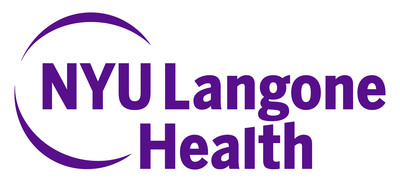A new analysis led by NYU Grossman School of Medicine and the National Drug Early Warning System (NDEWS) at the University of Florida found a 349 percent rise in seizures of illicit ketamine by drug enforcement throughout the United States from 2017 through 2022.
|
NEW YORK, May 24, 2023 /PRNewswire/ -- A new analysis led by NYU Grossman School of Medicine and the National Drug Early Warning System (NDEWS) at the University of Florida found a 349 percent rise in seizures of illicit ketamine by drug enforcement throughout the United States from 2017 through 2022. The study findings suggest that rising use of ketamine, a short-acting dissociative anesthetic commonly prescribed off-label to treat chronic pain and depression, can increase the likelihood that people who use recreationally or who use inadvertently may encounter an adulterated and potentially harmful version of the drug. The study publishes online May 24 in JAMA Psychiatry. "This dramatic rise in ketamine seizures by law enforcement may be indicative of rising nonmedical and recreational use," said study author Joseph J. Palamar, PhD, MPH, an associate professor in the Department of Population Health at NYU Langone Health and a researcher in the Center for Drug Use and HIV/HCV Research at NYU School of Global Public Health. "Unlike illegal ketamine years ago, most illegally obtained ketamine today is not pharmaceutical grade and is sold in powder form which may increase the risk that it contains other drugs such as fentanyl." He further added, "Unintentional exposure to fentanyl can lead to overdose." During the COVID-19 pandemic, the U.S. government eased prescribing practices for controlled substances so that more patients could use telemedicine and retain access to vital medications. While many patients benefited, the loosened restrictions also gave rise to an industry of pop-up clinics prescribing ketamine online and off label for a variety of mental health conditions, with little oversight of side effects. "Though the risk of overdose from ketamine alone is low, some people who use the drug report negative dissociative side effects, such as feeling dizzy or nauseous." In addition, Palamar, who has published extensively on the use of "club drugs" such as ketamine, MDMA (commonly known as ecstasy), and gamma-hydroxybutyric acid (GHB), among others, warns that people who use ketamine recreationally should be concerned about more than the drug's dissociative side effects. The fear, according to Palamar, is that any illegal powder in the U.S. may be contaminated with fentanyl, just as it is now turning up in heroin and cocaine. He also warns that media and medical promotion of prescription ketamine in recent years is fueling black-market use and availability. In addition to describing the rapid rise in ketamine seizures from 2017 to 2022, Palamar and colleagues found that the total weight of ketamine seized in the U.S. increased from 127 pounds in 2017 to about 1,550 pounds in 2022, an increase of more than 1,100 percent. The highest numbers of seizures were reported in Tennessee, Florida, and California, but it is unclear if these states have the highest usage since the location of seizures does not necessarily reflect the final destination of the drug shipments. Palamar hopes these latest findings will better inform prevention and harm reduction strategies to protect the public from increased exposure to illegal ketamine and possible adverse effects from use. NDEWS continues to monitor the use and effects of ketamine and many novel drugs to alert the public about alarming trends in a timely manner. In addition to Palamar, co-investigators include senior author Linda B. Cottler, PhD, MPH, at the University of Florida in Gainesville; Samuel T. Wilkinson, at Yale University in New Haven, Conn.; Thomas H. Carr, at the University of Baltimore in Maryland; and Caroline Rutherford, at Columbia University in New York City. Research reported in this publication was supported by the National Institute on Drug Abuse of the National Institutes of Health under grant numbers U01DA051126 and R01DA044207. The content of this research is solely the responsibility of the authors and does not necessarily represent the official views of the National Institutes of Health. Media Inquiries:
SOURCE NYU Grossman School of Medicine and NYU Langone Health |





